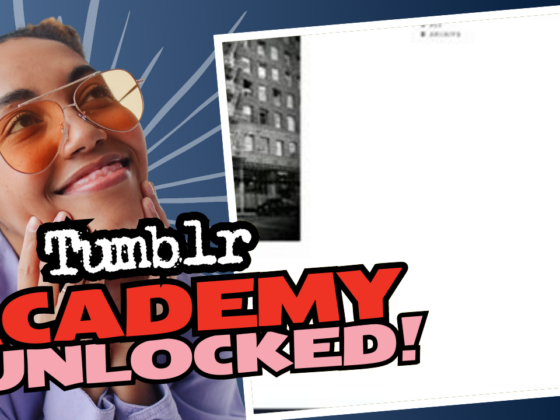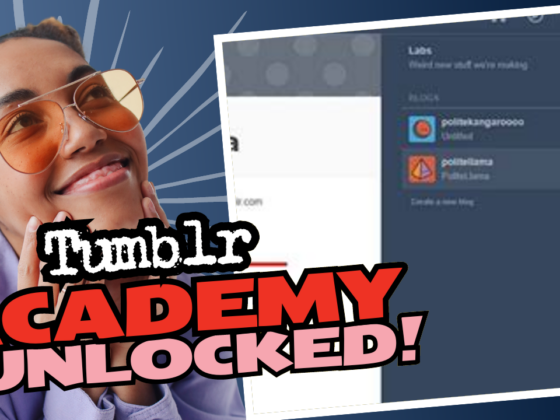Do Governments Monitor Tumblr Sites?
Ah, Tumblr! The quirky platform that gives everyone a place to express their inner artistic diva and share memes that you can’t find anywhere else. From fan art to in-depth analyses of that one scene from your favorite cartoon, the site has it all. But, as is often the case with online platforms, there’s a lingering question that crawls into the backs of users’ minds: “Does the government monitor what I’m doing on Tumblr?”
Let’s dive into the murky waters of online privacy, IP tracking, and governmental oversight. Spoiler alert: it’s a bit complicated, just like the last time you tried to explain your life choices to your parents.
The Inherent Risks
First things first, it’s not entirely outlandish to think that governments have some eyes on websites like Tumblr. However, the likelihood that they personally scroll through every single post of every user is pretty low—like finding a needle in a haystack, if the haystack was 2,000 miles wide.
So how could they monitor you? The road to your digital tracking can be a slippery slope. Anytime you let users post content (oh, hey there, comments!), it opens the door for some clever (and not so clever) coders to sneak in a little JavaScript. For the uninitiated, JavaScript is a programming language that, when left unchecked, can run wild in your browser like a toddler hopped up on sugar. If it’s executed successfully, it might just log your IP address. And let’s face it: nobody wants their personal info floating around in the cloud like some digital ghost.
Like a well-trained circus performer, websites like Tumblr are usually adept at thwarting these security issues. They’ve been playing this game for over 20 years, so if they’re poorly designed or insecure, well, let’s just say those developers haven’t been keeping up with the competition.
But What If the Site Gets Hacked?
Oh boy, it can get even messier. In an unfortunate turn of events, a third party could find a way to hack a website or the server it resides on. Is that likely to happen at Tumblr? Well, it’s about as likely as winning the lottery while accidentally spilling your coffee. It can happen, but it’s extraordinarily improbable, and to be frank, not worth your nightly panic attack.
The government isn’t your average Joe: They typically have bigger fish to fry than zooming into every little comment section on Tumblr posts. Plus, needing your IP address doesn’t necessarily mean they can find all your juicy secrets! Your good ol’ Internet Service Provider (ISP) holds the key to linking that digital breadcrumb back to your true billing details—which, let’s clarify, isn’t exactly something they’re handing out like candy on Halloween. Only law enforcement professionals equipped with the proper legal mandates (like a warrant) can get to that info. And doing so without a warrant? Well, that’s against the rules, buddy, and potentially very illegal!
Are You Really at Risk of Doxxing?
Now, let’s address the elephant in the room: the doxxing threats. Yes, we’ve all seen the dramatic posts about how a mere visit to a website can land you in serious trouble. But let’s hit the brakes on that train: if someone says you could get doxxed just for uttering the words “Tumblr” in your search bar, they likely just picked up paranoia from a shady corner of the internet. If that community sounds toxic enough to make threats like that, it might be time to take a digital detox and find a healthier online space.
Sure, tracking your public IP is within the realm of possibility, especially if there’s malicious code at play on the page or if you unwittingly click on a link leading to their web of tricks. And yes, the ads scattered around might also play a role, lurking like the shady dudes at a bar trying to solicit your secrets.
However, the chances of someone going through all that trouble just to target a casual Tumblr user? Slim to none, my friend. You’ll likely be just fine. So kick back, relax, and enjoy your meme-filled scroll without the looming fear of a hidden big brother lurking around every digital corner.
What Should You Do?
Feeling anxious or scared about governmental monitoring? Open your inbox and send an email to your representatives. Trust me, it’s way easier than trying to get through via phone, where an intern in a corporate black hole picks it up and thinks, “How can I ignore this?” Emails capture numbers better than phone calls, which means love letters to policymakers can demonstrate how many people feel strongly about an issue. If your opinion is as rare as a unicorn, they’re going to think twice! Make your voice heard!
Now, let’s be real. It’s crucial to stay informed and chat about these issues, lest we slip into a “Big Brother is Watching”-esque reality. The waves of digital surveillance ebb and flow, and before you know it, we could be knee-deep in a dystopia straight out of an awkward 80s movie. And let’s also be real—who wants that?
The Global Perspective
Now, let’s take a quick trip over the pond to our friends in Europe. How does this whole debacle impact users not living in the good ol’ U.S. of A? Well, if you’re enjoying Tumblr from across the Atlantic, breathe easy. Unless you’re willingly suspending disbelief and visiting shady sites or connecting to questionable VPNs, you shouldn’t be sweating bullets. The Earn It Act might have some ripple effects, especially if it weakens privacy protections across the board, but it’s still a *mostly* U.S.-centric problem.
When the U.S. sneezes, sometimes the world catches a cold, but you also have rights, mainly thanks to the General Data Protection Regulation (GDPR). This regulation prioritizes the protection of digital data for EU residents, placing some major checks on what personal data companies can collect and how long they can keep it. So in that sense, as a European, you can still hold your head high while dancing to the safe rhythm of your data privacy rights.
Cautionary Tales
Keep your eyes peeled, though. Observational awareness is your friend here. If you ever come across a major shift in privacy protections or governmental policies in the U.S. that seems to ripple across the globe, being aware gives you a better chance of navigating those waters. Just remember: it’s your data we’re talking about, and you should care!
To put it bluntly: the digital landscape isn’t going anywhere anytime soon. You have every right to be an informed citizen, whether you’re a total web nerd or a casual beach-goer scrolling through gifs. Keep your shades up, and stay aware.
The Bottom Line
In summary, while the government could technically monitor sites like Tumblr, it’s highly improbable that they’ll be spying on you every time you post a random meme. As long as the website takes steps to secure user-submitted content and as long as you access it carefully, you’re likely to be just fine, my friend.
So next time you hear someone muttering about the government tracking their every keystroke on Tumblr, take it with a pinch of salt—preferably with a side of irony. After all, we’re talking about a platform where people often just want to post cute cat pictures and rant about their favorite cinematic universes. Stay fabulous, keep creating, and don’t let the worries of governmental overreach suck the joy out of your online experience. Now go ahead and indulge in some wholesome reblogging!
And remember: the internet is full of characters, both good and bad. Keep your wits about you, stay safe, and don’t forget to raise your digital flag for freedom while you’re at it. The world deserves to know the truth, one #CatMemesAtATime.
Wrapping it Up
Let’s sum this up like a sassy yet wise internet guru: the government might have their keepers peering into the digital ether, but you’re not the target of their digital surveillance charm. So create those weird fan theories, share that cringe-worthy fan art, and connect with your fellow quirky souls without fretting over Big Brother’s hypothetical gaze. In the end, keep the internet weird—one meme at a time!









